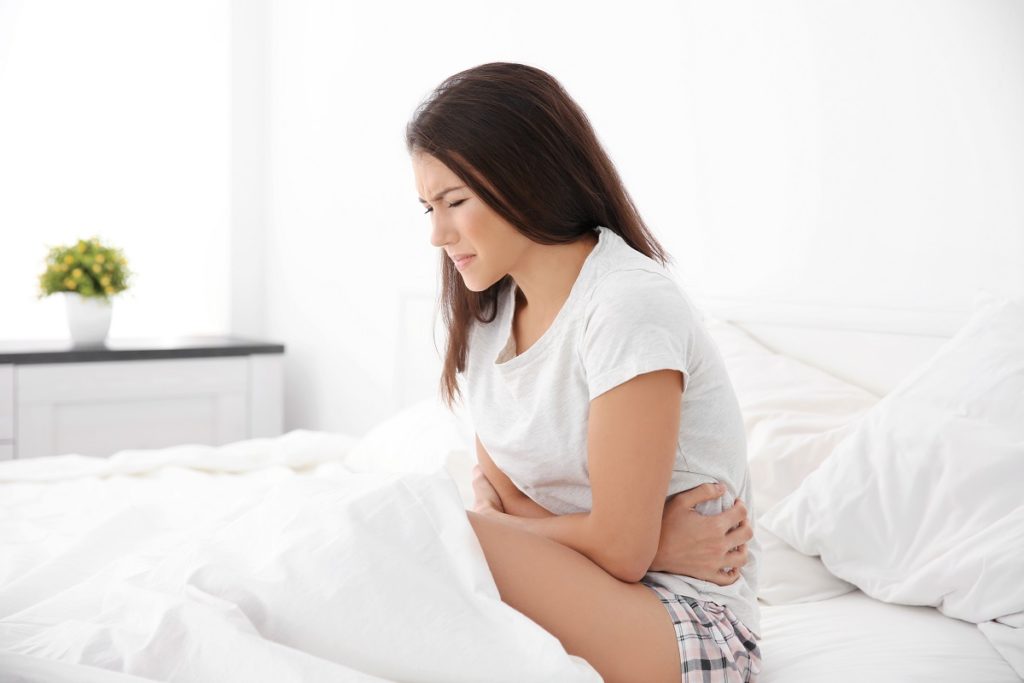Endometriosis is a painful disorder that affects at least one in ten women. However, it is infamous for being misdiagnosed as some other medical condition. This is due to the fact that most of its symptoms are similar to common menstrual pains. As a result, many women and medical professionals dismiss these symptoms as normal by-products of hormonal imbalances.
This lax attitude towards its symptoms can lead to serious gynaecological problems in the future for women who actually suffer from endometriosis. When left untreated, this condition causes impaired fertility and, in more serious cases, ovarian cancer. In order to mitigate these complications, women are encouraged to educate themselves on the symptoms of endometriosis. In doing so, you can raise the issue to your gynaecologist so they may confirm whether or not it is endometriosis.
Signs that Might Indicate You Have Endometriosis
-
Your menstrual cycle is marked by extreme pain.
Cramps often go hand-in-hand with menstruation; which is why most women dismiss it. However, pelvic pain caused by endometriosis goes beyond dysmenorrhea. This type of pain will often start prior to your cycle and continue days after it has finished.
The pelvic pain caused by endometriosis results from your body trying to dispel the endometrial tissue that formed outside of your uterus. Since this scar tissue doesn’t have anywhere to go, it irritates the pelvic region and causes extreme pain and discomfort.
-
Your sexual encounters are often painful.
There are several reasons why intercourse is painful for women; these range from vaginal infections to lack of lubrication. However, if you experience pain from deep penetration, it might be because you have endometriosis.
Your uterus is prone to movement during intercourse, even more so during deep penetration. The pain that results from this is caused by inflammation inside your uterus. It is further irritated when pressure is added to your utero ligaments where endometrial tissue usually accumulates.
-
You experience severe gastrointestinal problems.
From constipation to diarrhoea, endometriosis shares several symptoms with gastrointestinal problems. These problems are caused by endometrial scarring around your bowels. Since the scar tissue prevents your bowels from functioning normally, it creates intense discomfort that can even lead to rectal bleeding when left untreated.
-
You’re having difficulty conceiving.
In severe cases, endometriosis can damage your fallopian tubes or your pelvic cavity. Additionally, the scarring caused by endometrial tissue prevents your fallopian tubes from harvesting eggs. As a result, endometriosis is often diagnosed during fertility examinations because this is the last step most women take to figure out why they aren’t getting pregnant.
The Importance of Self-Diagnosis When Dealing with Endometriosis

Professional diagnosis for endometriosis can be carried out through a number of procedures. However, they can still prove to be insufficient in determining the cause of your physical woes. While not all doctors are likely to propose a laparoscopy when met with your self-assessment, you can still insist on this procedure should you want to.
This non-invasive procedure will give your gynaecologist a clear view of your abdomen to see if endometrial tissue has formed outside of your uterus. Often conducted while you’re under general anaesthesia, tools such as the ClearView® uterine manipulator accelerate this procedure for your comfort and convenience.
Since endometriosis symptoms are easily misdiagnosed as menstrual problems and other medical conditions, it is important that you know the difference. As your body, you have the insight in identifying which symptoms are normal or something more serious.
